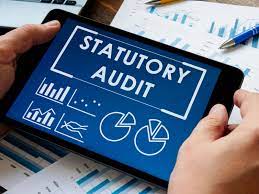![]()
Audit Process for Coal

The audit process for coal, oil, liquefied petroleum, and wood dealers differs in a few key ways.
♦ The nature of the business:
Coal, oil, liquefied petroleum, and wood dealers all deal in different types of fuels, which have different characteristics and risks.
For example, coal is a solid fuel that is relatively stable, while oil is a liquid fuel that is more volatile.
This difference in the nature of the business can affect the audit process in a number of ways, such as the types of controls that need to be in place and the level of risk assessment that is required.
♦ The regulatory environment:
The regulatory environment for coal, oil, liquefied petroleum, and wood dealers also differs from country to country.
For example, in India, the Petroleum and Natural Gas Regulatory Board (PNGRB) regulates the oil and gas sector, while the Ministry of Environment, Forest and Climate Change (MoEFCC) regulates the coal sector.
These different regulations can affect the audit process in a number of ways, such as the types of documents that need to be reviewed and the level of compliance testing that is required.
♦ The size and complexity of the business:
The size and complexity of the business can also affect the audit process. For example, a small coal dealer with a few employees will have a different audit process than a large oil company with thousands of employees.
The size and complexity of the business can affect the number of documents that need to be reviewed, the level of testing that is required, and the time and resources that are needed to complete the audit.
Overall, the audit process for coal, oil, liquefied petroleum, and wood dealers is similar in many ways, but there are also some key differences that need to be taken into account.
The auditor should be familiar with the specific industry and regulatory environment in order to conduct an effective audit.
Here are some of the specific areas that the auditor will focus on during the audit of a fuel dealer:
1. The inventory of fuel:
The auditor will verify the quantity and value of the fuel inventory.
2. The sales and purchase transactions:
The auditor will verify the accuracy of the sales and purchase transactions.
3. The accounts receivable and payable:
The auditor will verify the accuracy of the accounts receivable and payable.
4. The taxes:
The auditor will verify that the fuel dealer has paid all applicable taxes.
5. The compliance with regulations:
The auditor will verify that the fuel dealer is in compliance with all applicable regulations.
The auditor will also perform other tests and procedures as necessary to ensure that the financial statements of the fuel dealer are accurate and reliable.
To visit: https://www.mca.gov.in/

For further details access our website: https://vibrantfinserv.com